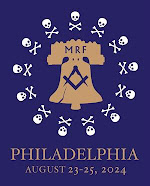The Anthroposophical Society of New York City has a month of great programs for April, including these artistic evenings. That’s 138 West 15th Street in Manhattan. Admission: $10-$20 donation suggested. 7 p.m. start times. From the publicity:
At the end of The Great War, sparked by bitter nationalist rivalries, Rudolf Steiner’s plan for a “Threefold Social Organism” aimed to make war impossible, limiting the power of the state by freeing cultural life and the economy as the state’s coequals. Two actors, Michael Burton and Ryan Kouroukis, playing a dozen parts between them, show how the rulers of the time received this idea. One hundred years later, could the time for Steiner’s approach be now?
An evening with members of the New York City Classical Guitar Society. Two seasoned performers enchant and entertain with a variety of pieces and styles.
Aryeh Eller studied guitar in Israel, earned a Bachelor of Music Degree from Brooklyn College and a Master of Music from Manhattan School of Music, and won the Andres Segovia Award for “Furthering the Spirit of the Guitar.”
Serguei Krissiouk studied guitar in Kiev, Ukraine, and music theory and composition in both England and Germany. His repertoire includes Renaissance, Baroque, Flamenco, and his own compositions.
Serguei Krissiouk returns to present “Heartfelt Thinking.”
How do we perceive? What is awareness? Through perception, our cognitive process constructs the world as we know it, but is it possible for us to perceive differently and to see what we usually do not notice? Is it possible to perceive the unknown? Is our thinking only a repetitive, analytic, and mechanical function? Or is it a living process warmed by the heart? As indicated by Rudolf Steiner, living thinking is a very important step in the process of development of higher cognitive abilities. Heartfelt thinking opens the doors of understanding.
Serguei Krissiouk is a student of life and a seeker of knowledge. He is an Anthroposophically trained physician, holistic counselor, homeopath, and musician.
Traveling to Russia in the 1990s, Dorothy discovered the wonderful world of romansy. Her path to the Russian art song began when she lived and went to school in the late 1940s as a diplomat’s daughter. Accompanied by Elizabeth Rodgers, Dorothy brings to these soulful and intimate songs the clear and direct expression of her American musical comedy heritage.
Dorothy Emmerson is a professional actress-singer who has appeared on Broadway and in regional theater across the country. She was on the faculty of the Michael Chekhov Studio, and in Japan she recorded an album of classic Broadway show tunes for Columbia Records (which is available in the bookstore).









































































